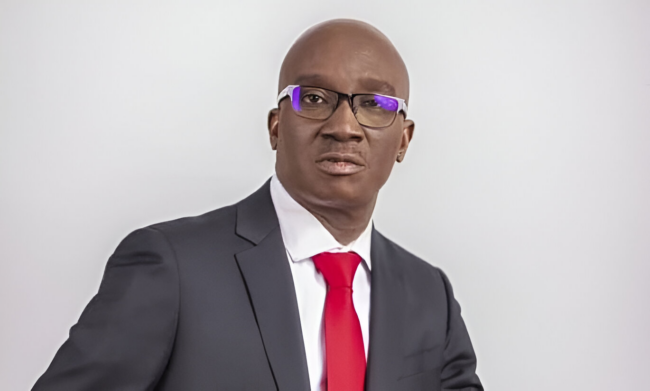
The Edo State Internal Revenue Service, (EIRS) said it has generated the sum of N79 billion out of the N100 billion target by the State in 2025 fiscal in the last nine months.
Oladele Bankole-Balogun, the executive chairman of EIRS, disclosed this during a meeting with heads of Ministries, Departments and Agencies, MDAs permanent secretaries, and directors in Benin- City.
Bankole-Balogun, however, warned that leakages by Ministries, Departments and Agencies, MDAs, threaten sustainable growth.
He added that between January and June, 2025, the agency generated N52.6 billion representing a 46 per cent increase over the 2024 generation.
The EIRS who described revenue as the “lifeline of development,” insisted that Edo must position itself as a frontrunner in implementing the new framework.
He also disclosed that the state government would be adopting the Treasury Single Account (TSA) as part of policy reforms to boost revenue generation and block leakages.
“These results are commendable. Yet, by the standards of the governor, the expectations of Edo people, and the possibilities before us, there is still much more to do.
Read also: Edo approves revised supplementary budget of ₦799bn for 2025
“A fundamental tool for achieving this is the Single Treasury Account (TSA), which we have begun to institutionalize.It ensures that all government receipts flow through a transparent,centralized account-eliminating cash handling,reducing leakages, and improving accountability.
“Going forward,we will insist that all revenue streams be remitted into the IGR account, with proper digital trials and accountability”, he said.
He explained that there was the need to close leakages, comply fully with the Treasury Single Account (TSA), and align with the Nigerian Tax Reform Acts set to take effect Jan. 1, 2026.
He said the meeting was more than administrative, and a clarion call for unity, collaboration, and shared purpose in building the Edo State of our dreams
“Revenue is not an end in itself; it is a means – a means to better roads, stronger health systems, vibrant education, safe communities, and dignity for all citizens of Edo State.
“Every MDA must become “a revenue-generating asset in its own right” while ensuring compliance with digital systems and TSA requirements.
While highlighting the opportunities in the 2025 Nigerian Tax Reform Acts, he said it would consolidate multiple tax laws into a unified Nigeria Tax Act (NTA).
He also explained that the reforms expanded the tax net to digital assets and informal commerce, introduced a four per cent development levy, and established new institutions like the Nigeria Revenue Service (NRS) and a Tax Ombudsman.
“The new framework simplifies, digitalises, and makes tax administration more predictable.
“Edo must align internal processes, adopt e-receipting and digital reporting, and leverage our informal and digital economy for sustainable growth,” he added.
He, however, urged MDAs handling land, urban planning, permits, and business registrations to strengthen compliance under the restructured stamp duty and real estate provisions.
He also called for sustained partnership, with the MDAs stressing that, “We do not ask for compliance by fiat, but by reason, trust, systems, and partnership.
“Think of the untapped potential in land and planning agencies, in building control, in informal trade regulation, in permitting systems, and in new business registration,” he advised.
“We invite each of you to own the vision, to embed revenue-conscious thinking in your agencies, and to commit to the discipline that accountability demands.”, stated.
On his party, Jackson Eribo, Executive Director of MDA Services, listed some of the challenges hindering revenue optimisation to include illegal opening of revenue accounts, cash collections against the state’s cashless policy, and partial remittances
Eribo listed other challenges to include fragmentation of systems outside the Edo Revenue Administration System (ERAS), and non-compliance with Tax Clearance Certificate (TCC) requirements.
He noted that the continued violation of the state’s cashless policy through cash collections and partial remittances remains a serious concern.





